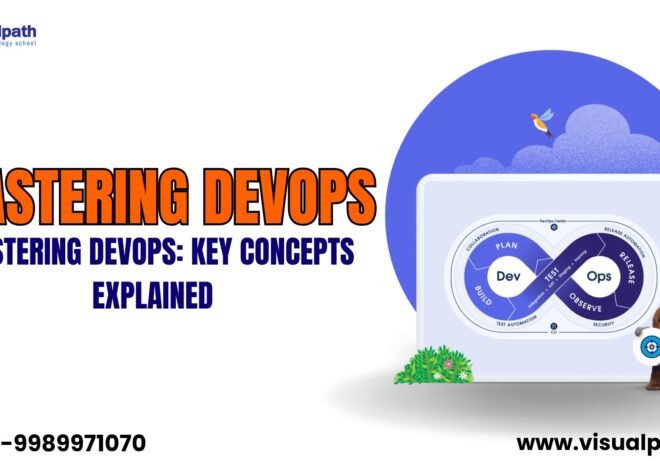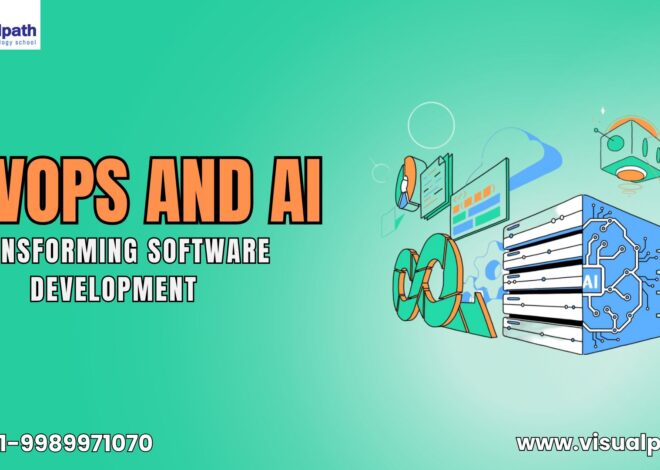DevOps has emerged as a transformative approach that enhances collaboration, accelerates delivery, and optimizes workflows. With the rapid advancement of artificial intelligence (AI), DevOps practices are being further revolutionized, bringing forth new tools and technologies that amplify efficiency, automation, and decision-making. This article delves into the role of AI in DevOps, exploring how AI-driven tools and technologies are shaping the future of this discipline.
The Intersection of AI and DevOps
DevOps emphasizes continuous integration, continuous delivery (CI/CD), and automated workflows to improve the speed and quality of software deployment. AI enhances these principles by introducing intelligent automation, predictive analytics, and advanced data processing capabilities. By leveraging AI, organizations can streamline their DevOps pipelines, enhance operational efficiency, and deliver more reliable software.
AI-Driven Tools Transforming DevOps
- AI-Powered Continuous Integration and Delivery (CI/CD)
AI is essential to CI/CD pipeline optimization. Tools such as Jenkins X and GitLab CI/CD are incorporating AI to improve build and deployment processes. AI can predict build failures by analyzing historical data, suggest code changes, and even automatically resolve issues. This predictive capability reduces manual intervention and accelerates the deployment cycle.
- Intelligent Code Review and Quality Assurance
Code quality is critical in DevOps, and AI tools are making significant strides in this area. Code Guru by Amazon Web Services (AWS) and SonarQube use AI to analyze code for potential issues, security vulnerabilities, and performance improvements. These tools provide actionable insights and recommendations, enhancing code quality and reducing the likelihood of bugs making it to production. DevOps Training
- Automated Incident Management
Incident management and resolution are essential aspects of maintaining operational stability. AI-driven tools like PagerDuty and OpsGenie leverage machine learning algorithms to predict potential incidents based on historical data and real-time metrics. They can also automate incident response processes by suggesting resolutions or escalating issues to the appropriate team members. As a result, downtime is decreased and system reliability is raised overall.
- Predictive Analytics for Monitoring
Monitoring and observability are critical for ensuring application performance and stability. AI-powered monitoring tools such as Datadog and Dynatrace utilize machine learning to analyze vast amounts of performance data. They can identify anomalies, predict potential issues, and provide actionable insights before problems escalate. This proactive approach allows teams to address issues before they impact end-users.
- Smart Automation and Orchestration
Automation is a cornerstone of DevOps, and AI enhances this by enabling more intelligent and adaptive workflows. Ansible and Puppet have started integrating AI to automate complex tasks and manage configurations more effectively. AI can adapt automation scripts based on changing environments and contexts, ensuring that operations are always optimized and aligned with current needs. AWS DevOps Training
- AI-Enhanced Security (DevSecOps)
Security is a growing concern in DevOps, and AI is making significant contributions to this field. Snyk and Darktrace use AI to detect vulnerabilities, analyze potential threats, and respond to security incidents in real-time. By integrating AI into the DevOps pipeline, organizations can enhance their security posture and ensure that their applications and infrastructure are resilient against cyber threats.
Challenges and Considerations
While AI brings numerous benefits to DevOps, it’s essential to address some challenges and considerations: DevOps Training Online
- Data Quality and Privacy: AI tools rely on high-quality data to make accurate predictions and recommendations. Ensuring data privacy and integrity is crucial to the successful implementation of AI in DevOps.
- Integration Complexity: Integrating AI tools into existing DevOps pipelines can be complex. Organizations need to carefully plan and manage the integration process to avoid disruptions and ensure seamless adoption.
- Skill Requirements: Implementing and managing AI-driven tools requires specialized skills. Teams need to invest in training and development to effectively leverage AI technologies.
The Future of AI in DevOps
As AI technology continues to evolve, its impact on DevOps will only grow. Future advancements may include more sophisticated AI algorithms, deeper integrations with DevOps tools, and even greater automation capabilities. Organizations that embrace AI in their DevOps practices will likely gain a competitive edge, achieving faster time-to-market, higher quality software, and more efficient operations.
Conclusion
AI is playing a transformative role in DevOps, enhancing automation, improving code quality, and enabling predictive analytics. By leveraging AI-driven tools and technologies, organizations can optimize their DevOps pipelines, improve operational efficiency, and deliver more reliable software. As AI continues to advance, its integration with DevOps will further shape the future of software development and operations, driving innovation and excellence in the industry. DevOps Online Training
Visualpath is the Leading and Best Software Online Training Institute in Hyderabad. Avail complete DevOps Training Worldwide. You will get the best course at an affordable cost.
Attend Free Demo
Call on – +91-9989971070




